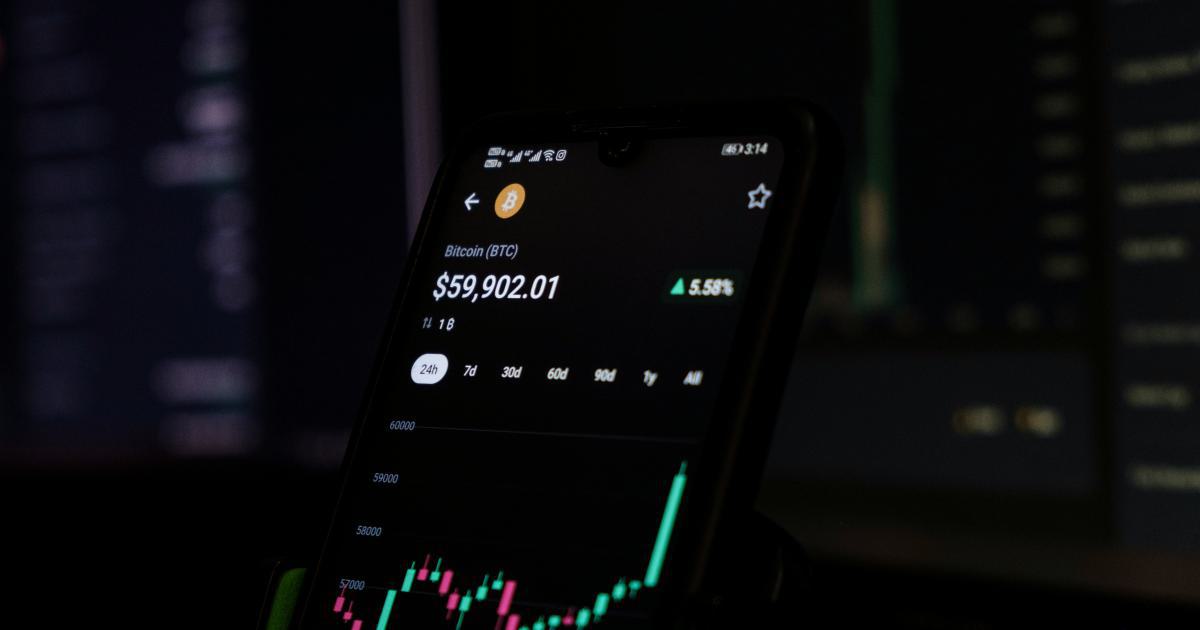Why is forex trading so difficult for beginners?

Venturing into the world of forex trading can be an intimidating experience, especially for those who are new to the financial markets. Many aspiring traders quickly discover that forex trading difficult beginners enter a realm filled with volatility, complexity, and risk management challenges. The forex market operates 24/7, involving numerous economic indicators, geopolitical events, and intricate technical analyses that can overwhelm even the most enthusiastic learner. This article delves into the myriad reasons why forex trading is challenging for beginners, providing an in-depth look at market dynamics, educational hurdles, psychological barriers, and common pitfalls that traders face when entering the forex arena. Through real-world examples, actionable steps, and expert tips, we aim to equip you with a comprehensive understanding of the complexities involved, enabling you to develop a more measured and strategic approach to your trading journey.
Understanding Forex Trading: A Beginner's Overview
Forex trading involves the global exchange of currencies, and its market is recognized as the largest and most liquid financial market worldwide. For beginners, the rapid pace and fluctuating nature of currency pairs can be especially daunting. Unlike stock trading, forex markets operate continuously during weekdays, influenced by events happening across different time zones. This constant activity demands that traders not only understand how economic policies, inflation rates, and geopolitical situations influence currency values but also learn to react quickly to market shifts.
Beginners often initially focus on the potential for high profit margins, fueled by the allure of significant returns. However, this focus can lead to underestimating the importance of education and preparation. A comprehensive understanding of the basics, including leverage, pip value, lots, and the risks associated with these factors, is essential for any trader hoping to succeed. Without proper foundational knowledge, novice traders may fall prey to common mistakes such as overtrading, misreading market signals, and failing to implement risk management strategies.
Consider the scenario of a beginner who enters the market with minimal research and an over-reliance on online tips. Their first trades might yield mixed results, and the ensuing losses could create a cycle of impulsive decisions driven by emotion rather than reason. This cycle highlights the crucial difference between theoretical knowledge and actual trading experience.
Another important aspect that beginners often overlook is the role of economic calendars and news releases. The forex market is highly sensitive to global events such as interest rate changes, political elections, and economic reforms. For someone who is not prepared, these events can trigger unexpected swings in currency values, leading to significant losses within a very short period. Therefore, successful forex trading demands not only technical savvy but a solid grasp of global economic developments.
Furthermore, understanding the wide range of available analytical tools is vital for researching market trends and making informed trading decisions. Tools like moving averages, Relative Strength Index (RSI), Fibonacci retracements, and various chart patterns provide insights; however, mastering each tool requires time, practice, and study. Beginners may struggle to integrate these methods into a coherent trading strategy.
The educational journey of a forex trader should be approached methodically. Many experts suggest starting with a demo account before committing real capital. Demo trading allows a beginner to understand market mechanics without the pressure of financial risk. It also provides a simulated environment to hone strategy and risk management skills. As a trader gains experience, they are likely to develop personal methods tailored to their understanding and risk tolerance.
Despite the availability of educational resources—from online courses and webinars to books and mentorship programs—many beginners admit that the volume of information available can sometimes lead to analysis paralysis. Instead of focusing on a few core concepts and strategies, traders can become overwhelmed by the endless stream of conflicting advice, which only compounds the inherent challenges of entering forex trading.

The Complexity of Market Dynamics
Forex markets are influenced by an interlocking network of factors that create both opportunities and challenges. To navigate these complexities, beginners must familiarize themselves with both microeconomic and macroeconomic factors that influence currency movements. Let’s break down some of the key elements that contribute to market complexity.
Economic Indicators and Global Events
Economic indicators such as Gross Domestic Product (GDP), inflation rates, employment figures, and trade balances are fundamental metrics that significantly affect currency values. For instance, a stronger-than-expected employment report can boost a country's currency value, as it indicates economic growth and stability. On the contrary, if economic indicators disappoint, traders could experience sudden reversals. Beginners may find it difficult to ascertain which data points are most relevant, when to expect news releases, and how to interpret these indicators under pressure.
Global events further complicate the market landscape. Political instability, natural disasters, or even unexpected policy changes can unpredictably alter the market sentiment. This unpredictability is not only challenging for beginners but requires the development of adaptive strategies that can account for unforeseen disruptions in the trade environment. For example, the Brexit vote in 2016 led to substantial volatility in the British Pound, catching many traders by surprise and underscoring the need for continuous market monitoring.
Technical and Fundamental Analysis: A Dual Approach
A solid trading strategy in forex typically relies on a dual approach: technical and fundamental analysis. Technical analysis involves studying past market data, mainly price and volume, to identify trends and forecast future movement. Tools such as trend lines, support and resistance levels, and various indicators help traders make informed decisions. However, mastering these tools is a gradual process that demands both education and practical experience.
Fundamental analysis, on the other hand, examines economic indicators and events to gauge the intrinsic value of a currency. While technical analysis can tell you what is happening in the market, fundamental analysis offers insight into why it is happening. Beginners often find it challenging to integrate these two approaches cohesively. Relying solely on technical or fundamental analysis can lead to misinterpretations and flawed trading decisions.
Automated Trading and Algorithmic Complexity
The increasing prevalence of automated and algorithmic trading adds another layer of complexity to the forex market. These systems are designed to execute high-speed, high-frequency trades based on pre-set criteria and can outpace human decision-making. For novice traders, understanding the algorithms behind automated trading systems can seem nearly impenetrable. Moreover, these systems may create market conditions that are volatile and less predictable, as price movements are influenced by large, automated trades rather than human sentiment alone.
Some beginners might be tempted to use automated systems to simplify the trading process. However, without a clear understanding of the underlying strategies and risks, traders can be misled by the appearance of ease. It is essential to note that while algorithmic trading can increase efficiency, it also requires constant monitoring and adjustments in response to market shifts, making it a challenging dimension for beginners to grasp fully.
The Role of Liquidity and Market Participants
Liquidity in the forex market is another factor that complicates trading. High liquidity means there is a large volume of transactions, which usually translates to more stable prices and easier execution of trades. However, not all currency pairs offer the same degree of liquidity. Major pairs like EUR/USD and USD/JPY typically have high liquidity, while exotic pairs can be less predictable and more volatile.
Beginners might not always understand the importance of liquidity in risk management and may mistakenly venture into trading less liquid pairs in pursuit of higher profits. In doing so, they expose themselves to higher volatility and potentially steep losses. Additionally, market participants include a diverse range of players—from individual retail traders and institutional investors to central banks and hedge funds. Each brings different strategies and objectives to the market, further complicating the trading environment for newcomers who strive to predict and react to a myriad of influences.
Developing a Trading Strategy That Works
Given the complexity of the forex market, one of the most significant hurdles for beginners is developing a trading strategy that aligns with their risk tolerance and financial goals. A sound strategy is built on rigorous research, consistent practice, and continual refinement. Here are several key components that should be considered when forming a trading plan.
Setting Realistic Goals and Expectations
A common pitfall for beginners is entering the market with unrealistic expectations about profits and success rates. Often, novice traders are swayed by sensational success stories or misleading marketing tactics that promise quick riches. Such narratives can lead to undue risk-taking and emotional trading decisions. It is crucial to start with well-defined, measurable goals that emphasize long-term growth rather than immediate, dramatic gains.
Understanding that losses are part of the learning curve in forex trading is vital. Rather than viewing losses as failures, they should be regarded as opportunities to adjust strategies and improve trading skills. Setting realistic profit targets and acceptable loss limits will help beginners maintain discipline and avoid getting caught up in emotionally driven decisions.
Risk Management: The Cornerstone of Sustainable Trading
Risk management is perhaps the most critical aspect of any successful forex trading strategy. Effective risk management techniques involve setting stop-loss orders, only risking a small percentage of total capital per trade, and diversifying trades across different currency pairs. Beginners often overlook these measures, which leads to disproportionate losses that can be financially and emotionally devastating.
A proven method for managing risk is the use of the risk-reward ratio. For every trade, a trader should ideally target a return that is at least two to three times greater than the amount risked. This strategy ensures that even if some trades result in losses, the overall net gain remains positive. Detailed record-keeping of trades, including noting reasons for entry and exit decisions, can further aid in refining one’s trading methodology over time.
Education and Continuous Learning
One of the most effective ways to overcome the challenges associated with forex trading is through continuous education. This includes formal training, mentorship, and self-study. Numerous online courses, trading simulators, webinars, and advanced literature on technical indicators and market analysis are available to aspiring traders.
Engaging in a demo trading environment where no real money is at risk allows beginners to experiment with different strategies and learn from their mistakes. Through demo trading, one can familiarize themselves with trading platforms, understand the timing behind market entries and exits, and gain confidence in executing trades under simulated market conditions.
Another vital aspect of education is staying updated with the latest trends and technological advancements in the world of forex. As markets evolve, so do the strategies and tools used for trading. For example, advancements in mobile trading apps have made it easier for traders to monitor the markets 24/7, while improvements in charting software provide more detailed technical analysis. Embracing these tools and continuously updating one’s skill set is essential for adapting to the changing market dynamics.
Expert Analysis and Peer Reviews
There is considerable value in seeking the insights of experienced traders. Joining trading communities, forums, and social media groups where market analysis is shared can be extremely beneficial. By engaging with peers and experts, beginners can gain access to real-world insights, learn invaluable tips, and avoid common pitfalls. Many experienced traders emphasize that understanding market sentiment often involves learning from mistakes that cannot be gleaned from textbooks alone.
Peer reviews and performance critiques can also guide traders in refining their individual strategies. Constructive feedback helps in identifying weaknesses in current trading approaches and in implementing sound practices for future trades. Moreover, regularly reviewing and analyzing past trades fosters a disciplined mindset conducive to continuous improvement.

Psychological and Emotional Challenges in Forex Trading
Beyond market mechanics and strategy, the psychological aspect of trading cannot be overstated. The inherent stress and uncertainty of the forex market often trigger emotional responses that undermine objective decision-making. For beginners, managing these emotions is as critical as mastering technical analysis.
The Role of Emotions in Trading
Emotions such as fear, greed, and overconfidence can significantly impact a trader’s performance. For instance, the fear of losing money can lead to hesitation in placing trades, causing missed opportunities and regret over potential profits. Conversely, a rush of overconfidence after a series of wins may embolden a trader to take on excessive risk, frequently resulting in dramatic losses when the market does not move as anticipated.
Many seasoned traders stress the importance of cultivating patience and discipline. Developing a calm, composed mindset allows traders to stick to their strategies without succumbing to impulsive, emotionally charged decisions. Meditation, journaling, and regular self-reflection are techniques that some traders have found helpful in maintaining mental clarity, even under significant market stress.
Psychological Pitfalls Common Among Beginners
One common psychological trap is the tendency to overtrade. Beginners, driven by the excitement of early gains or the urgency to recoup initial losses, may execute too many trades in a short period. This behavior frequently results in poor decision-making, where high-risk trades are made without thorough analysis. Overtrading not only increases transaction fees but also exposes traders to heightened market risk.
Another issue is confirmation bias—the inclination to favor information that confirms one’s preconceived beliefs about the market while dismissing contradictory evidence. This bias can lead to stubbornly holding onto losing positions or making decisions not grounded in comprehensive analysis. To combat this, aspiring traders must learn to evaluate market data objectively and be willing to adjust their perspectives as new information emerges.
Building a Resilient Mindset
Developing a resilient mindset is essential for long-term success in forex trading. Several practices can help in cultivating this resilience:
Establishing a well-defined trading plan that outlines entry and exit criteria limits the impact of emotional decision-making.
Regularly reviewing and reflecting on past trades to objectively understand the factors that led to both successes and mistakes.
Seeking support from mentors or trading communities where experiences and challenges can be openly discussed.
Many veteran traders recommend dedicating time to mastering one’s psychology as vigorously as learning technical skills. One effective strategy is to simulate high-pressure trading scenarios in a demo account, helping to build emotional strength before risking real money.
Real-World Case Studies: Lessons from Market Veterans
To better illustrate the psychological challenges of forex trading, consider the experience of a novice trader named Alex. Initially, Alex entered the forex market with high expectations and an aggressive trading style. When a series of unexpected news events led to substantial market volatility, Alex’s emotions quickly took over. Instead of adhering to a pre-planned strategy, Alex made impulsive decisions driven by fear and panic, resulting in significant losses.
Over time, Alex realized that success in forex was not solely dependent on market knowledge but equally on mastering the psychological game. By seeking mentorship and committing to a disciplined approach—including strict adherence to stop-loss orders and regular performance reviews—Alex gradually learned to manage emotions more effectively. This transformation underscores the importance of psychological discipline in navigating the highs and lows of forex trading.

The Impact of Technology and Evolving Trading Tools
Advancements in technology have greatly influenced how forex is traded today. While modern trading platforms provide numerous benefits such as real-time data, advanced charting tools, and automated trade execution, they also introduce new challenges for beginners.
The Double-Edged Sword of Automation
Automation in forex trading, including algorithmic and copy trading, offers the promise of executing complex strategies with speed and precision. However, relinquishing control to automated systems can be a double-edged sword. Beginners might find themselves overly reliant on these systems without fully understanding the underlying principles. Properly configuring, monitoring, and periodically reviewing the algorithms is essential, as market conditions can change rapidly and render an automated strategy ineffective if not adjusted in time.
Moreover, platform glitches, latency issues, or even improper settings can lead to unexpected losses, further complicated by the speed at which the forex market operates. It is crucial for beginners to balance the use of technology with a solid grounding in fundamental and technical analysis.
Keeping Up with Rapid Technological Changes
In today’s fast-paced market, technological innovations continue to redefine trading. Mobile trading apps now allow traders to participate in the market from virtually anywhere, offering convenience and immediate access to global events. Additionally, advancements in data analytics provide more detailed insights into market trends and trader behavior. However, mastering these technologies requires continuous learning and adaptation—attributes that can be particularly challenging for newcomers who are still grappling with the basics of forex trading.
Staying updated with platform updates, new tools, and emerging trends is key to maintaining a competitive edge. Many successful traders dedicate time each week to explore new educational resources, attend webinars, or participate in community discussions about the latest technological innovations in the trading world.
Integrating Technology into a Personal Trading Workflow
For beginners, the integration of technology into a personal trading workflow can be overwhelming. A practical approach is to start with a basic trading platform and gradually incorporate more sophisticated tools as one's confidence and understanding of the market improve. Experimenting with demo accounts and simulations can provide a risk-free environment to explore the functionalities of various trading applications. Over time, as traders gain more experience, they can identify which technological enhancements contribute most effectively to their overall strategy and risk management plans.
Overcoming the Challenges: Actionable Solutions for Beginners
Having explored the multifaceted reasons why forex trading is challenging for beginners, it becomes evident that success in this field requires more than just a theoretical grasp of the market. It calls for practical strategies, continuous learning, and a disciplined mindset. Below are actionable steps and expert tips designed to help beginners navigate the forex market more effectively.
1. Commit to Continuous Education
One of the most valuable investments a beginner can make is in education. Here are concrete steps for developing your forex trading knowledge base:
- Enroll in reputable online courses that cover both the theoretical and practical aspects of forex trading.
- Participate in webinars and live trading sessions to observe experienced traders in action.
- Read widely from trusted sources, including books written by successful traders and articles from established financial websites.
- Join trading communities where you can ask questions, share experiences, and learn from others’ mistakes.
2. Develop a Robust Trading Plan
A well-crafted trading plan is your blueprint for navigating the volatile forex markets. Consider the following:
- Define clear, achievable goals and set a realistic time frame for achieving them.
- Establish specific entry and exit criteria for each trade based on technical and fundamental analysis.
- Incorporate strict risk management measures, such as stop-loss and take-profit orders.
- Review and adjust your plan periodically to reflect new insights and changes in market conditions.
- Practice your plan consistently in a demo trading environment before applying it to real-world scenarios.
3. Embrace Risk Management as a Core Principle
Mitigating risk is central to long-term success in forex trading. Here are key practices:
- Only risk a small percentage of your total trading capital on any single trade.
- Use a favorable risk-reward ratio to ensure that your potential gains outweigh any limited losses.
- Keep a detailed trading journal to review how risk management strategies perform over time.
- Constantly calibrate your risk tolerance based on ongoing experience and evolving market dynamics.
4. Cultivate Emotional Discipline
Emotional resilience is as important as technical competence. To build emotional discipline:
- Practice mindfulness or meditation techniques to improve focus and reduce impulsive behavior.
- Commit to a structured trading routine that minimizes reactive decisions during periods of market volatility.
- Seek mentorship or counseling from experienced traders who understand the psychological challenges of the trading world.
- Avoid overtrading by setting daily or weekly limits on the number of trades executed.
5. Leverage Technology Wisely
Integrating technology into your trading strategy can be highly beneficial if done correctly:
- Start by familiarizing yourself with the fundamental tools of your chosen trading platform.
- Gradually explore more advanced features such as backtesting, automated strategy simulations, and mobile trading.
- Regularly update your knowledge about new tools that could enhance your trading performance.
- Use technology as an aid, not as a crutch—ensure you maintain a solid understanding of the market fundamentals.
Real-World Examples and Success Stories
To contextualize the challenges and solutions discussed, consider several real-world examples of traders who overcame the difficulties of entering the forex market.
John, an aspiring trader, began his journey by investing significant time in understanding market fundamentals and technical analysis. Despite his best efforts, he initially suffered a series of small but demoralizing losses. Instead of giving up, John meticulously reviewed each trade, identifying patterns in his decision-making that were influenced by emotional reactions rather than objective analysis. By implementing a strict risk management strategy and gradually refining his technical skills, John eventually developed a disciplined trading methodology that helped him transition from a novice to a consistently profitable trader.
Similarly, Maria, another beginner, struggled with the overwhelming amount of information available on forex trading. Short on time but eager to learn, she enrolled in a comprehensive online course and joined a local trading group. Maria benefited immensely from peer discussions and mentorship, which provided her with real-time insights and actionable advice. Through continuous learning and a commitment to emotional discipline, she was able to avoid the pitfalls of overtrading and developed a balanced strategy that accounted for both market fundamentals and technical signals.
These examples highlight that while the journey is challenging, it is not insurmountable. Many traders have experienced the struggles inherent to forex trading difficult beginners and ultimately found success by adopting a structured, well-researched approach supported by strong risk management and psychological resilience.
Conclusion: Embracing the Learning Curve
Forex trading is undoubtedly challenging for beginners. The intricate blend of market dynamics, technical analysis, automation, and emotional management creates a demanding environment. Nevertheless, the key to overcoming these obstacles lies in embracing the learning curve with dedication and patience. Through continuous education, a robust trading plan, stringent risk management, and cultivating emotional discipline, beginners can gradually transform their initial struggles into a sustainable trading journey.
Remember that every expert trader was once a beginner, facing the same daunting hurdles. The process of learning, failing, and eventually succeeding is intrinsic to the journey toward mastery. By integrating the actionable solutions and expert tips outlined in this article, beginners can build a strong foundation, avoid common pitfalls, and steadily work toward achieving consistent results in the forex market.
Ultimately, success in forex trading is less about finding a secret shortcut and more about developing the discipline, knowledge, and resilience necessary to navigate a complex and ever-changing market. Embrace each challenge as an opportunity to refine your skills, and over time, the difficulties encountered as a beginner will pave the way for informed, strategic, and profitable trading decisions.
For those ready to embark on this journey, the road ahead is as much about personal growth as it is about financial gain. Continually seek out high-quality education, remain patient during periods of volatility, and remember that every setback is a setup for a comeback. With these principles in mind, you can transform the daunting world of forex trading into a landscape of opportunities where every challenge met becomes a stepping stone toward eventual trading success.
In summary, the nuanced difficulties faced by forex trading difficult beginners are multifaceted, ranging from understanding market complexity to managing the psychological impacts of trading. The path forward requires relentless commitment to learning, precise strategy formation, disciplined risk management, and above all, the resilience to persist even when the market seems indifferent to your efforts. By methodically addressing each of these areas, the beginner can gradually build the expertise and mental fortitude necessary to thrive in one of the most dynamic financial markets in the world.
While the journey is long and filled with unpredictable twists, the rewards of persistence and disciplined learning can be substantial. Overcoming the challenges of forex trading not only opens the door to potential financial gain but also cultivates a deeper understanding of global economic dynamics and a more resilient approach to risk management. The insights provided in this article are a starting point—armed with the right tools, a curious mind, and unwavering determination, even the most daunting obstacles can be transformed into valuable lessons on the road to trading success.
As you progress, always be mindful of the evolving nature of the forex market. Adaptability, continuous improvement, and the willingness to learn from every trade will form the cornerstone of your trading philosophy. The experiences shared here are merely examples of the broader potential for growth that lies ahead for every beginner who dares to step into this challenging yet rewarding world.
Whether you are embarking on your trading journey or looking to refine your existing strategy, the wisdom gleaned from both success stories and failures can serve as a reliable guide. Embrace the challenges, stay informed, and above all, remain committed to your long-term vision. The path may be difficult at the outset, but with time, persistence, and a structured approach, the obstacles that make forex trading difficult for beginners today can become the catalysts for your future success.
Happy trading, and may your journey be as educational as it is lucrative!
Unleash the Power of Automated Trading Analysis
Are you struggling to keep up with the fast-paced trading world? TrendSpider empowers you with cutting-edge tools for optimal strategy execution.
Our automated technical analysis suite eliminates guesswork, backtests strategies, and delivers real-time alerts, saving you valuable time and effort.
Shion Tanaka
64 posts written





